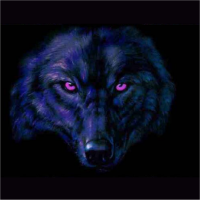In the making of any game, the developers have to ask themselves how much some things have to be emulated, or how much they have to be real. Be it physics, lighting, spawning or AI, everything is important, and often a middle ground must be found, because usually no single concept offers the whole answer.
Take monster spawning, for example. The traditional way of handling respawns is to have creatures pop out of thin air, with no explanation as to why or how they do it; and the harder it is to explain something, the harder it is to suspend one's disbelief. At the opposite end of the scale, however, every spawn is explained in details (and education videos), which takes more hardware to run than all the players together; not really a position in which you want to find yourself, unless you consider the players to be a background upon which the NPCs play their carefully-orchestrated masterpiece.
Finding a middle ground, you want to spawn creatures within growing groups, away from a player's eyes. The circumstances surrounding the addition to a member - or more - to that group should be good enough that the birth of that creature should be obvious and predictable, so that total immersion into the game world can be achieved. You also want the nature of the spawned creature to fit with the game world; should it spawn a member of a species which starts young, then it should be young. Should it spawn within a species with castes, it should belong to a caste, such that the group will be better off with it. And, of course, you should apply a generous amount of randomness in the new creature's abilities, so it can be differentiated from other members of its group, within the capacities of the species and group, of course.
However, there's still plenty of room for deciding how to do things. Do creatures age at a continuous rate, such that you can observe it changing slowly over time, or they they hit stages of life and pop to their new form? Are the capacities of a member decided randomly, or are they affected by its environment? And, of course, do its belonging appear upon birth, or does your creature acquire them through hard, virtual work?
You might also want to compare with the current games on market. People are used to enemies popping into existence, and would probably not look twice if creatures appeared to change before them, without visible reason. The idealism of a realistic virtual world is laudable, but it serves little purpose if it takes you a month to create something the players will never see. Balance in all things also applies to game creation, it seems.
Take monster spawning, for example. The traditional way of handling respawns is to have creatures pop out of thin air, with no explanation as to why or how they do it; and the harder it is to explain something, the harder it is to suspend one's disbelief. At the opposite end of the scale, however, every spawn is explained in details (and education videos), which takes more hardware to run than all the players together; not really a position in which you want to find yourself, unless you consider the players to be a background upon which the NPCs play their carefully-orchestrated masterpiece.
Finding a middle ground, you want to spawn creatures within growing groups, away from a player's eyes. The circumstances surrounding the addition to a member - or more - to that group should be good enough that the birth of that creature should be obvious and predictable, so that total immersion into the game world can be achieved. You also want the nature of the spawned creature to fit with the game world; should it spawn a member of a species which starts young, then it should be young. Should it spawn within a species with castes, it should belong to a caste, such that the group will be better off with it. And, of course, you should apply a generous amount of randomness in the new creature's abilities, so it can be differentiated from other members of its group, within the capacities of the species and group, of course.
However, there's still plenty of room for deciding how to do things. Do creatures age at a continuous rate, such that you can observe it changing slowly over time, or they they hit stages of life and pop to their new form? Are the capacities of a member decided randomly, or are they affected by its environment? And, of course, do its belonging appear upon birth, or does your creature acquire them through hard, virtual work?
You might also want to compare with the current games on market. People are used to enemies popping into existence, and would probably not look twice if creatures appeared to change before them, without visible reason. The idealism of a realistic virtual world is laudable, but it serves little purpose if it takes you a month to create something the players will never see. Balance in all things also applies to game creation, it seems.
